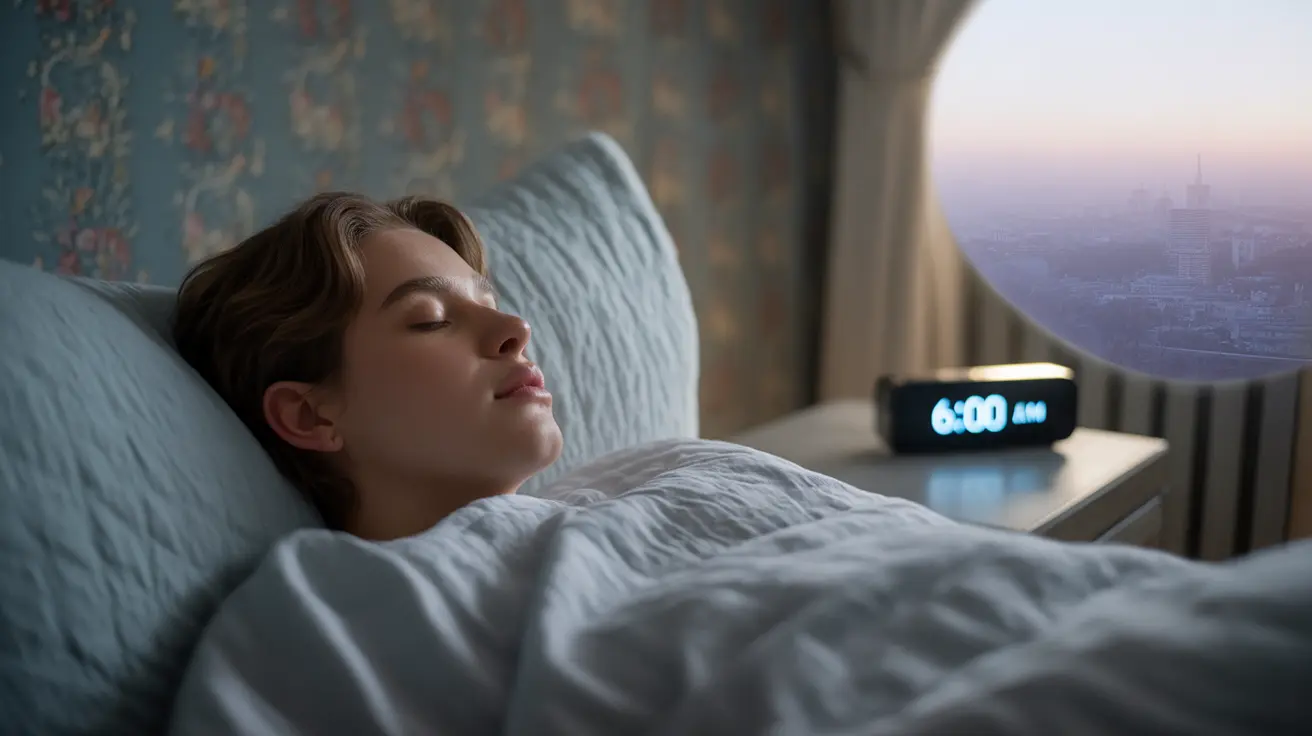False awakening dreams are a fascinating yet potentially unsettling phenomenon where dreamers believe they've woken up, only to realize they're still dreaming. These unique dream experiences can leave individuals feeling confused and sometimes anxious, particularly when they occur repeatedly or in conjunction with other sleep-related experiences.
Understanding the nature of false awakening dreams, their causes, and potential management strategies can help individuals better cope with these experiences and improve their overall sleep quality. Let's explore this intriguing aspect of dream psychology in detail.
What Are False Awakening Dreams?
False awakening dreams occur when a person dreams about waking up and starting their daily routine, only to eventually realize they're still asleep. These dreams can be remarkably vivid and realistic, often including precise details of familiar environments and typical morning activities.
These experiences typically fall into two categories: Type 1 and Type 2 false awakenings. Type 1 involves relatively mundane, realistic dreams of routine morning activities, while Type 2 features more dramatic or unsettling elements that might hint to the dreamer that something isn't quite right.
Common Causes and Risk Factors
Several factors can contribute to the occurrence of false awakening dreams:
- Sleep schedule disruptions
- Heightened stress and anxiety levels
- Poor sleep quality
- Irregular sleep patterns
- Certain medications
- Sleep disorders
Environmental factors and lifestyle choices can also play a significant role in triggering these experiences. Maintaining consistent sleep habits and addressing underlying stress factors may help reduce their frequency.
The Role of Stress and Anxiety
Stress and anxiety are particularly significant triggers for false awakening dreams. When the mind is preoccupied with worries or responsibilities, it may manifest these concerns through dream scenarios, including false awakenings. This connection highlights the importance of stress management in maintaining healthy sleep patterns.
Connection to Other Sleep Phenomena
Relationship with Lucid Dreaming
False awakening dreams often intersect with lucid dreaming experiences. Some individuals report that false awakenings can serve as a gateway to lucid dreaming, as the realization that one is still dreaming can lead to increased dream awareness and control.
Sleep Paralysis Connection
There's a notable relationship between false awakening dreams and sleep paralysis. Some people experience false awakenings immediately before or after episodes of sleep paralysis, creating a complex and sometimes distressing sleep experience.
Prevention and Management Strategies
While completely preventing false awakening dreams may not be possible, several strategies can help reduce their frequency:
- Maintain a consistent sleep schedule
- Practice good sleep hygiene
- Create a relaxing bedtime routine
- Manage stress through relaxation techniques
- Keep a dream journal
- Avoid caffeine and heavy meals before bedtime
Frequently Asked Questions
What are false awakening dreams and how do they differ from regular dreams?
False awakening dreams are dreams where you believe you've woken up when you're actually still asleep. Unlike regular dreams, they specifically simulate the experience of waking up and starting your day, often with highly realistic details. They differ from typical dreams in their focus on routine activities and their tendency to feel more vivid and real.
What causes false awakening dreams and which factors increase the risk of experiencing them?
False awakening dreams can be caused by various factors including stress, anxiety, irregular sleep patterns, and certain sleep disorders. Risk factors include high stress levels, poor sleep hygiene, inconsistent sleep schedules, and certain medications that affect sleep architecture.
How can stress, anxiety, and sleep disorders trigger false awakening dreams?
Stress and anxiety can disrupt normal sleep patterns and increase arousal during sleep, making false awakening dreams more likely. Sleep disorders can fragment sleep cycles and alter REM sleep patterns, potentially increasing the frequency of these experiences.
What is the connection between false awakening dreams, sleep paralysis, and lucid dreaming?
These phenomena often overlap and can occur together. False awakenings can lead to lucid dreaming when dreamers realize they're still asleep. They may also occur before or after sleep paralysis episodes, suggesting a connection in how the brain transitions between sleep states.
How can I prevent or reduce the frequency of false awakening dreams through better sleep habits?
Improving sleep habits can help reduce false awakening dreams. This includes maintaining a regular sleep schedule, creating a relaxing bedtime routine, managing stress levels, practicing good sleep hygiene, and avoiding sleep disruptors like caffeine and electronic devices before bed.




